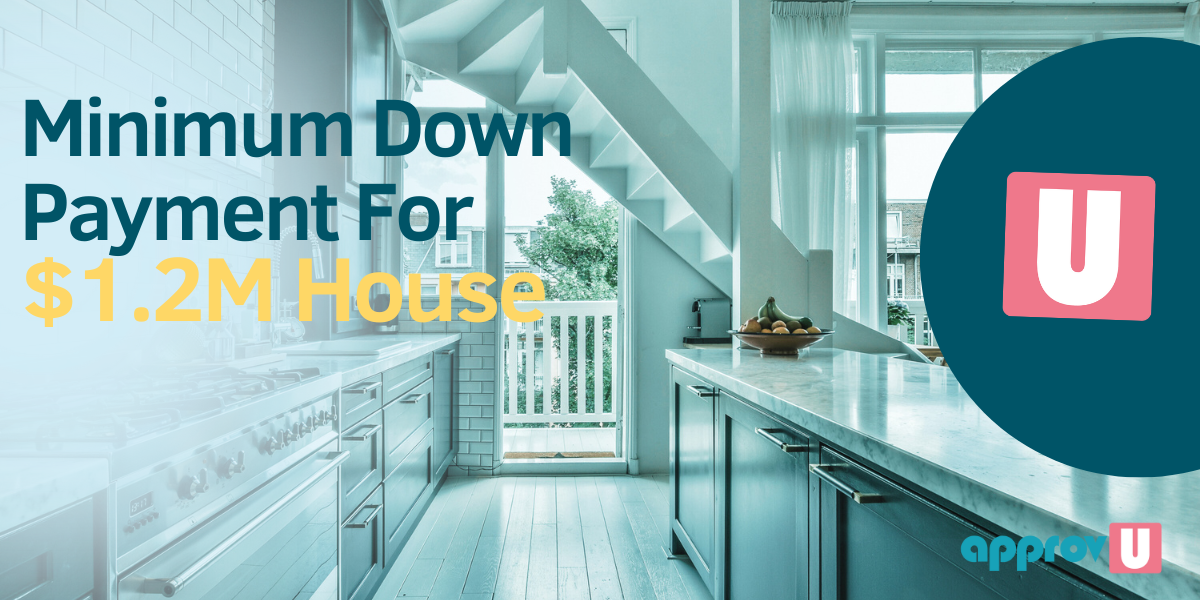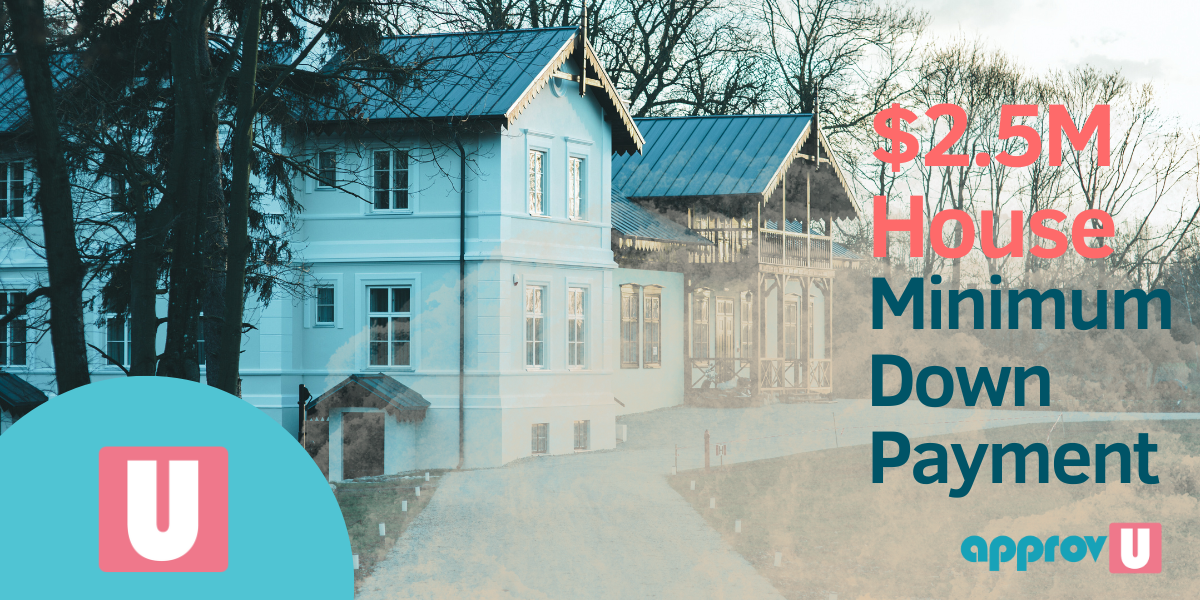Imagine waking up every day without the weight of financial obligations dictating your choices.
Whether it’s choosing to take a spontaneous trip, helping out a family member, or simply having the freedom to pursue your passions without worry — that’s the essence of financial freedom.
But what exactly does it mean?
Financial Freedom Defined
At its core, financial freedom is the ability to live the life you want without being burdened by monetary constraints.
It’s not just about being wealthy or having much money in the bank.
Instead, it’s about having enough resources, savings, investments, or passive income streams to cover your lifestyle choices and needs.
The peace of mind comes from knowing you’re secure, both now and in the years to come.
Significance of Financial Freedom
Achieving financial freedom doesn’t just offer you personal and emotional benefits.
It also has profound implications for your health, relationships, and overall quality of life.
Stress related to financial struggles can impact your well-being and strain your connections with loved ones.
Conversely, having the autonomy that financial freedom brings can lead to richer experiences, broader horizons, and the empowerment to shape your destiny.
- Holistic Planning: The Key to Unlocking Financial Freedom
- Understanding the Basics of Mortgage Planning
- The Role of Mortgage in Your Financial Portfolio
- Strategies for Mortgage Planning Towards Retirement
- Considerations for Mortgage Planning
- The Connection between Mortgage Planning and Other Retirement Assets
- Common Mistakes in Mortgage Planning for Retirement
- Steps to Integrate Mortgage Planning into Your Retirement Strategy
- Case Study: Real-life Examples of Successful Mortgage Planning
- Conclusion
Holistic Planning: The Key to Unlocking Financial Freedom
You might wonder how one attains this coveted state of financial freedom. It doesn’t happen by chance.
It results from deliberate, holistic planning encompassing all facets of your financial life.
Holistic planning isn’t just about saving or investing; it’s about considering the bigger picture.
This includes understanding and planning for your mortgage, especially as you approach retirement.
Integrating mortgage planning into your broader retirement strategy ensures that one of your largest financial obligations aligns with and supports your long-term goals.
By doing so, you’re taking an essential step toward not just retiring comfortably but achieving true financial freedom.
Stick with us as we delve deeper into the intricacies of mortgage planning and how it fits seamlessly into your journey toward a financially free retirement.
Understanding the Basics of Mortgage Planning
Navigating the world of finances can sometimes feel like deciphering a foreign language.
But fear not; we’re here to help you make sense of mortgage planning and its role in your journey towards financial freedom.
Let’s break it down.
What is Mortgage Planning?
At its simplest, mortgage planning is the process of aligning your mortgage with your broader financial and life goals.
Think of your mortgage not just as a loan for your home but as a tool in your financial toolbox.
Just like you wouldn’t use a hammer for every household job, you shouldn’t think of a mortgage as a one-size-fits-all solution.
Instead, it’s about understanding how this financial commitment can be structured to suit your unique circumstances and long-term aspirations.
Different Types of Mortgages
Before you can optimize your mortgage for retirement, you need to familiarize yourself with the types of mortgage options at your disposal.
Each has its benefits and considerations, especially in the context of retirement.
- Fixed-Rate Mortgages: As the name suggests, the interest rate for these mortgages remains fixed throughout the loan term. This offers you predictability in your monthly payments, making budgeting more straightforward. However, if market interest rates decrease, you might end up paying more than necessary.
- Adjustable-Rate Mortgages (ARM) or Variable-Rate Mortgages: These come with interest rates that can change based on market conditions. Initially, ARMs often offer lower rates than fixed-rate mortgages. While this might seem attractive, remember that your payments could increase in the future, which might not be ideal as you transition into retirement with a fixed income.
- Interest-Only Mortgages: For a specified period, you’re only required to pay the interest on the loan. This results in lower initial payments, but you aren’t reducing the principal. The monthly payments can jump significantly when you start paying off the principal. This might be suitable for short-term homeownership but can be risky as a long-term retirement strategy. Private mortgages are typically interest-only.
- Reverse Mortgages: Designed for seniors, this allows you to tap into your home’s equity to receive funds either as a lump sum, monthly payments, or a line of credit. While it can offer an income stream during retirement, it’s essential to understand the costs and implications, as the loan becomes due when you move out, sell the home, or upon your passing.
Implications for Retirement
Your choice of mortgage can dramatically influence your financial landscape during retirement.
For instance, a fixed-rate mortgage offers stability, which many retirees prefer.
While potentially cheaper initially, an ARM might pose budgeting challenges if rates rise.
And while a reverse mortgage can supplement your retirement income, it could affect your estate’s value.
As you can see, mortgage planning is not just about selecting a loan.
It’s about integrating that choice into your overall financial picture, ensuring that as you near retirement, you’re not just secure but truly thriving.
The Role of Mortgage in Your Financial Portfolio
Your home is often more than just a place to live; it’s a significant part of your financial story.
A mortgage, therefore, isn’t just a debt; it’s an integral component of your financial portfolio.
Understanding its role can empower you to make informed decisions tailored to your retirement vision.
How a Mortgage Affects Your Overall Financial Health
Firstly, it’s essential to grasp how a mortgage impacts your financial landscape:
- Leverage: By taking out a mortgage, you’re leveraging borrowed money to invest in a potentially appreciating asset. If your home’s value rises over time, the equity you build can outpace the interest you pay, offering you a net positive return.
- Credit Score: Responsibly managing your mortgage by making timely payments can positively impact your credit score. Conversely, missed payments can damage your credit, making future borrowing more expensive or challenging.
- Cash Flow: Monthly mortgage payments can be one of your most substantial monthly expenses. How much of your income is directed towards these payments can dictate your ability to invest, save, or spend in other areas.
- Net Worth: Over time, as you pay down the principal on your mortgage and potentially benefit from home appreciation, your net worth can increase. Your home equity becomes a valuable asset in your financial portfolio.
Benefits of Having a Mortgage During Retirement
For some, having a mortgage during retirement might sound counterintuitive, but there can be advantages:
- Potential Tax Benefits: Depending on your jurisdiction, the interest paid on your mortgage might be tax-deductible, offering potential tax savings.
- Investment Opportunities: If you can secure a low mortgage interest rate, it might make financial sense to keep the mortgage and use any additional funds to invest in higher-yielding opportunities.
- Flexibility: A mortgage can provide liquidity. Rather than tying up all your funds in your home, a mortgage allows you to have cash available for other opportunities or emergencies.
Drawbacks of Having a Mortgage During Retirement
However, there are also potential downsides:
- Fixed Expenses: In retirement, when you might be on a fixed income, having a mandatory monthly mortgage payment can strain your budget, especially if unexpected expenses arise.
- Interest Costs: Over the life of the loan, you might end up paying a significant amount in interest, which could have been used for other purposes or investments.
- Potential Stress: For many, the idea of entering retirement with debt can be emotionally taxing, even if it makes financial sense on paper.
Strategies for Mortgage Planning Towards Retirement
Retirement might evoke images of relaxation, travel, or picking up new hobbies.
However, to fully relish this phase, it’s crucial to have a strategic plan in place.
Part of that strategy centres around your mortgage decisions leading up to and during retirement.
Let’s explore some key strategies tailored to you and your financial situation.
Pre-retirement: The Value of Paying Off Your Mortgage Early
Benefits:
- Peace of Mind: Imagine entering retirement without the monthly obligation of a mortgage payment. It offers you a sense of financial and emotional relief.
- Reduced Interest Costs: By paying off your mortgage early, you significantly reduce the total amount of interest you’d pay over the life of the loan.
- Increased Cash Flow: Without monthly mortgage payments, you free up funds for other endeavours, be it travel, investment, or other passions.
Considerations:
While the allure of being mortgage-free is strong, ensure you’re not sacrificing contributions to retirement accounts or other investments with potentially higher returns.
Downsizing: Selling a Larger Home to Purchase a Smaller One
Benefits:
- Liberated Equity: By selling a larger, potentially more expensive home, you can tap into the built-up equity, providing you with a significant financial boost.
- Lower Expenses: A smaller home often means reduced maintenance costs, property taxes, and insurance.
- Lifestyle Alignment: As you transition into retirement, your needs change. Downsizing can align your living situation with your new lifestyle.
Considerations:
Remember to factor in moving costs, the emotional value of your home, and the potential changes in your social environment.
Refinancing: Securing Better Interest Rates or Terms
Benefits:
- Lower Monthly Payments: By securing a lower interest rate, you can reduce your monthly mortgage payments, offering more financial flexibility.
- Shortened Loan Term: Refinancing can allow you to pay off your mortgage sooner, potentially aligning with your retirement timeline.
- Switching Loan Types: Refinancing can enable you to switch from an adjustable-rate mortgage to a fixed-rate one, providing more predictability.
Considerations:
Refinancing often comes with fees.
Calculating the break-even point is essential to determine if the cost of refinancing outweighs the potential benefits.
Reverse Mortgages: Tapping into Home Equity for Retirement Income
Benefits:
- Supplementary Income: A reverse mortgage allows you to access your home’s equity to provide an additional income stream during retirement.
- Stay in Your Home: Unlike selling, a reverse mortgage enables you to continue living in your home while benefiting from its value.
Considerations:
Reverse mortgages come with costs, can affect your estate’s value, and the loan becomes due under certain conditions.
It’s vital to understand these nuances before proceeding.
Your path to retirement is as unique as you are.
By understanding and employing these mortgage strategies, you’re equipping yourself with the tools to sculpt a retirement that not only meets your financial needs but also nurtures your dreams and aspirations.
Considerations for Mortgage Planning
Crafting the perfect retirement strategy isn’t just about choosing the right investments or saving diligently.
It’s about making informed decisions, especially concerning your mortgage.
As you navigate this journey, several key considerations must be considered, ensuring you’re not just financially stable but truly thriving in your retirement years.
Tax Implications of Mortgage Decisions
The Good:
- Potential Deductions: Depending on your jurisdiction, the interest you pay on your mortgage may be tax-deductible, which could reduce your taxable income and, by extension, your tax liability.
- Capital Gains Exemption: If you sell your primary residence, you might qualify for a capital gains exemption, allowing you to keep a significant portion, if not all, of the profit tax-free.
The Caveats:
Remember, tax laws can be intricate and change over time.
It’s essential to stay informed or consult with a tax professional to understand the implications specific to your situation.
Impact on Retirement Cash Flow and Expenses
- Fixed Mortgage Payments: If you still have a mortgage during retirement, remember that this fixed expense will consistently draw from your retirement funds. You’ll need to ensure your retirement income can comfortably cover this.
- Unforeseen Costs: Homes come with maintenance and repair costs. Even if your mortgage is paid off, you’ll need to factor these potential expenses into your retirement budget.
- Asset Liquidity: While your home is a valuable asset, it’s not as liquid as cash. Ensure you have enough liquidity for emergencies without relying solely on home equity.
Flexibility vs. Fixed Expenses: Understanding the Trade-offs
- The Appeal of Flexibility: By maintaining a mortgage or opting for a reverse mortgage, you might enjoy more liquidity and flexibility in your financial portfolio. This can be particularly beneficial if you come across unexpected expenses or investment opportunities.
- The Comfort of Fixed Expenses: On the other hand, many find solace in the predictability of fixed expenses. By paying off your mortgage before retirement or downsizing, you can have a clearer picture of your monthly outgoings, allowing for more structured financial planning.
The Balance:
Your preference for flexibility versus predictability isn’t merely financial—it’s also emotional.
Some find peace in knowing they have the freedom to maneuver, while others sleep better knowing their monthly expenses are capped.
Recognizing where you fall on this spectrum is vital.
The Connection between Mortgage Planning and Other Retirement Assets
Retirement planning is akin to piecing together a puzzle.
Each piece, from your RRSP to your Old Age Security to your personal savings, must interlock seamlessly.
Your mortgage is one such pivotal piece.
Let’s delve into how your mortgage decisions intertwine with your other retirement assets and how you can harmoniously align them for a serene retirement landscape.
How Mortgage Decisions Affect Your Retirement Savings and Investments
- Opportunity Costs: Every dollar directed towards your mortgage is a dollar not being funnelled into your retirement accounts or other investments. Consider the potential returns you might be forgoing if you prioritize paying off your mortgage over maximizing contributions to investment accounts with higher returns.
- Liquidity Constraints: A significant portion of your wealth may be tied up in home equity. While this represents a form of savings, it isn’t as liquid as other investments, potentially making it harder for you to access funds in emergencies or capitalize on investment opportunities.
- Risk Management: Unlike the volatile nature of stock markets, home equity can provide a stable value to your portfolio. However, real estate isn’t risk-free. Property values can fluctuate, and unforeseen maintenance expenses can impact your overall financial health.
Aligning Your Mortgage Strategy with Your Overall Retirement Plan
- Harmonize with Investment Goals: If you’re eyeing aggressive returns from your investments, you might consider a strategy where you maintain a mortgage and invest any extra cash. Conversely, if stability and predictability are your mantras, accelerating mortgage payments to be debt-free by retirement might align more closely with your temperament.
- Plan for Income Streams: Evaluate the expected income from your retirement accounts. If these accounts, combined with other income sources, can comfortably cover mortgage payments (if any) during retirement, you might enjoy the financial flexibility a mortgage can offer. If not, you might prioritize paying it off before retirement.
- Holistic Financial Health: Retire assets aren’t just about quantity and quality. It’s essential to have a diverse mix that provides growth, stability, and liquidity. Your home equity plays a role in this mix, but ensure it complements other assets rather than overshadowing them.
Common Mistakes in Mortgage Planning for Retirement
Mortgage planning is a nuanced endeavour, especially as it intersects with retirement.
While the path you take is deeply personal, certain pitfalls can derail even the most well-intentioned plans.
By recognizing and sidestepping these common missteps, you’ll be better equipped to craft a mortgage strategy that serves your retirement vision.
Here’s a closer look at some typical errors and how you can avoid them.
Failing to Consider Future Income Reductions
The Oversight:
It’s easy to assume that your earning capacity will remain constant, but retirement often brings a shift from regular pay cheques to fixed incomes from savings, pensions, or Social Security.
The Consequence:
Without adequate planning, you might find a mortgage payment that’s too hefty for your reduced retirement income, straining your budget.
The Solution:
Project your expected retirement income when planning for a mortgage that extends into retirement.
Ensure your future self can comfortably manage the mortgage payments and other living expenses.
Overleveraging in the Lead-up to Retirement
The Oversight:
The allure of a dream home or the desire to capitalize on a buoyant real estate market can sometimes lead to buying more houses than you can afford, especially as retirement looms.
The Consequence:
Overextending yourself can strain your current finances and impede your ability to save sufficiently for retirement.
The Solution:
While it’s natural to aspire for a comfortable living space, always weigh the long-term implications of a larger mortgage.
Consider how it aligns with your retirement goals and whether it leaves you with ample room to continue investing in your retirement funds.
Not Exploring All Available Mortgage Options
The Oversight:
Sticking with your current mortgage or choosing a product solely based on interest rates can mean missing out on options better suited to your retirement plans.
The Consequence:
You might end up with a mortgage that doesn’t offer the flexibility or benefits that could have been availed from other products.
The Solution:
Periodically review your mortgage, especially as retirement nears.
Consult with one of approvU mortgage experts to understand the array of products available.
Whether it’s refinancing for a better rate, opting for a mortgage with more flexible terms, or considering products like reverse mortgages, ensure your choice aligns with both your present circumstances and future aspirations.
Steps to Integrate Mortgage Planning into Your Retirement Strategy
Synchronizing mortgage planning with retirement is much like choreographing a dance.
Each step, pivot, and turn must be executed with precision to create a harmonious performance.
As you embark on this dance of financial planning, it’s essential to understand the choreography.
Here’s a step-by-step guide to help you seamlessly integrate mortgage planning into your overarching retirement strategy.
Assess Your Current Financial Situation and Goals
- Self-reflection: Begin by taking stock of where you stand today. How much do you owe on your mortgage? What’s the interest rate? How does this monthly expense fit within your current budget?
- Future Vision: Where do you see yourself in retirement? Are you yearning for a globe-trotting adventure, a serene countryside retreat, or perhaps a life filled with hobbies and time spent with loved ones? Your retirement goals will influence your mortgage decisions.
- Financial Forecast: Project your financial trajectory. How much do you expect to have saved by retirement? What will be your sources of income? Understanding this will help you gauge how your mortgage fits into the broader picture.
Work with Financial and Mortgage Advisors
- The benefit of Expertise: While you’re the master of your financial journey, professionals can provide valuable insights and tools to help you navigate the intricacies of mortgage and retirement planning.
- Custom Solutions: By understanding your unique situation and aspirations, advisors can recommend mortgage products or strategies tailored to your needs. This could mean refinancing, switching mortgage types, or even exploring avenues like reverse mortgages.
- Holistic Planning: Beyond just mortgage advice, financial professionals can help ensure that your mortgage decisions complement and bolster your other retirement assets and strategies, offering a well-rounded approach to your financial health.
Continually Review and Adjust as Circumstances Change
- Life’s Uncertainties: Just as seasons change, so can life’s circumstances. Whether it’s an unexpected financial windfall, a change in the housing market, or shifts in your personal life, it’s crucial to be adaptive.
- Annual Check-ins: Make it a ritual to review your mortgage and retirement plans annually. This doesn’t just mean glancing at numbers but truly assessing their alignment with your evolving goals and life situation.
- Stay Informed: The worlds of finance and real estate are ever-evolving. Keep abreast of changes in mortgage products, interest rates, and retirement planning tools. This knowledge will empower you to make informed decisions.
Case Study: Real-life Examples of Successful Mortgage Planning
Case studies offer invaluable insights by presenting real-life scenarios, successes, challenges, and the strategies that made a difference.
Let’s delve into the journey of a couple who masterfully integrated mortgage planning into their retirement strategy, gleaning lessons and takeaways to illuminate your own path.
The Journey of Sarah and Alex
Background:
Sarah, a schoolteacher, and Alex, a small business owner, purchased their dream home in their mid-30s.
They secured a mortgage with a fixed 25-year amortization period, opting for multiple 5-year term mortgages.
As they navigated life’s milestones, they wondered how this significant debt would mesh with their retirement dreams of travelling and spending quality time with their grandchildren.
The Strategy:
- Financial Assessment: Sarah and Alex began by mapping their financial situation. They identified their monthly expenses, savings rate, and the projected growth of their investments.
- Professional Consultation: Recognizing the value of expertise, they consulted a financial planner and a mortgage advisor. This dual consultation helped them understand how their mortgage fit into the larger retirement picture.
- Renewal Decisions: As each 5-year term came up for renewal, they meticulously assessed the current interest rates and terms available. With guidance, they chose options that progressively reduced their interest burden and dovetailed with their retirement timeline.
- Additional Payments: Using bonuses and extra earnings from Alex’s business, they made occasional additional payments, further reducing their mortgage term.
- Downsizing Consideration: As their children moved out, they contemplated selling their large family home to buy a cozier place, reducing their living costs and freeing up more money for their retirement plans.
The Outcome:
By the time Sarah and Alex reached their early 60s, they were mortgage-free.
Their diligent planning and strategic decisions, influenced by expert advice, allowed them to enter retirement without the burden of monthly mortgage payments.
This freedom enabled them to allocate more funds to their travel aspirations and spend undistracted time with their growing family.
Lessons Learned and Takeaways for Readers:
- Early Planning is Key: The earlier you start integrating mortgage planning into your retirement strategy, the more options and flexibility you’ll have.
- Seek Expertise: Professional advice can shed light on opportunities and strategies you might not know, potentially saving you money and time.
- Stay Adaptable: Life is dynamic. Regularly reassess your situation and be open to making adjustments as needed.
- Consider Lifestyle Changes: Sometimes, rethinking your living situation, like downsizing, can align more closely with your evolving needs and retirement dreams.
Conclusion
As you stand at the crossroads of today and the promise of tomorrow, the decisions you make echo into the future, shaping the contours of your retirement years.
One of these pivotal decisions revolves around your mortgage.
By effectively integrating mortgage planning into your retirement strategy, you’re not just navigating the nuances of debt but sculpting a future of financial freedom and comfort.
The Long-term Benefits of Effective Mortgage Planning
- Peace of Mind: Imagine a retirement free from the weight of monthly mortgage payments or, at the very least, one where these payments are well within your comfort zone. Effective planning paves the way for such tranquillity.
- Financial Flexibility: You optimize your cash flow by strategically managing your mortgage in alignment with your retirement vision. This flexibility can fund travel, hobbies, or simply the joy of life’s little luxuries in your golden years.
- Asset Maximization: Your home is more than a shelter; it’s a significant financial asset. Proper planning ensures that the equity in your home complements your other retirement assets, striking a harmonious balance between liquidity, growth, and stability.
Proactive and Informed Decision-making for a Secure Financial Future
- Knowledge is Power: Equip yourself with information. Understand the intricacies of different mortgage products, the implications of terms, and the ripple effects of interest rates. This knowledge empowers you to make decisions that resonate with your unique circumstances and goals.
- Seek Counsel: While you’re the captain of your ship, a seasoned navigator can be invaluable. Consulting with financial and mortgage advisors can illuminate paths you might not have considered, ensuring a smoother journey toward your retirement horizon.
- Regular Re-evaluation: Your life, the markets, and even your dreams are constantly evolving. Periodically reassess your mortgage strategy in light of these changes, making informed adjustments to stay aligned with your retirement vision.
In the grand tapestry of life, retirement represents a period of reflection, relaxation, and the pursuit of passions.
By weaving mortgage planning into this tapestry with care and foresight, you ensure that each thread, each decision, contributes to a picture of security, comfort, and joy.
As you move forward, let proactive and informed decision-making be your guiding stars, leading you to a horizon radiant with the promise of a secure and fulfilling financial future.
















